Main navigation | Main content
Campuses:

iberian@umn.edu
Iberian Studies: Past and Present
April 2014
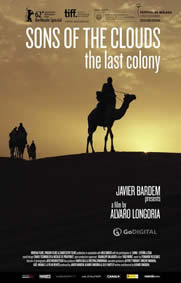 The Film Society of Minneapolis/Saint Paul Presents "Sons of the Clouds: The Last Colony"
The Film Society of Minneapolis/Saint Paul Presents "Sons of the Clouds: The Last Colony"
April 4, 2014
6:15 p.m.
St. Anthony Main Theater, Minneapolis
Academy Award winner Javier Bardem stars in this compelling documentary that shines a light on the political and human rights issues facing the people of the Western Sahara. This documentary brings awareness to the conflict in the region and encourages leaders to pursue a resolution. Watch the Trailer.
Visit the Film Society's website for more information.
April 2014
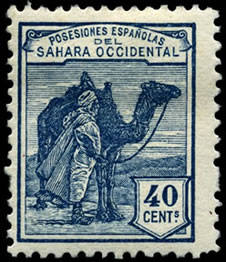 Beyond Iberian Colonialisms
Beyond Iberian Colonialisms
April 4 & 5, 2014
University of Minnesota - Twin Cities
A one day conference exploring contemporary “Spanish Arabs”—people from Spain’s former colony in North Africa, the Western Sahara—and how they are caught between a Europe that often fails to recognize them and an Arab world in which they are also seen as foreign. The poets and human rights activists, including Aminetou Haidar, who was nominated for the Nobel Peace Prize in 2012, Bahia Awah, journalist, poet and novelist, and Limam Boicha, journalist and poet, have long advocated for the Saharawi people in Spain and Europe, but only in the last five years has their literary work and the political challenges they face caught the attention of the English-speaking world. This conference connects the histories of Iberian colonialisms with the present realities of African immigration and cultural production, leading to an understanding of why contemporary poets from the Western Sahara write poetry in Spanish, why conflict between contemporary Moroccan policy and the human rights of Saharans has to do with Spain’s colonial past, and why contemporary Iberian and American artists have rallied behind the Saharan cause.
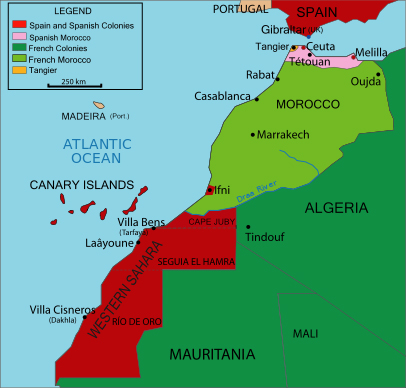 Featuring:
Featuring:
Aminetu Haidar is a peace advocate on behalf of Western Sahara. She was imprisoned and tortured by Moroccan authorities between 2005-6 and 1987-1991. She is the recipient of several international human rights prizes in recognition of her work on behalf of the Saharan people including in 2011 the René Cassin Human Rights Proze, in 2009 the Train Foundation’s Civil Courage Prize and in 2008 the Robert F. Kennedy Human Rights Award. US Senator Edward Kennedy said of Haidar, "all who care about democracy, human rights, and the rule of law for the people of the Western Sahara are inspired by her extraordinary courage, dedication and skilled work on their behalf." In 2009 she realized a hunger strike to call attention to the fate of the Western Sahara. Haidar's lecture will be titled, "Sahrawi Women and Peaceful Resistance."
Other Speakers from the Western Sahara include:
- Bahia Mahmud Hamadi. Poet, author and honorary professor of Anthropology, Universidad Autónoma de Madrid, UAM. He will deliver a paper entitled: “La dimensión del verso en la Historia saharaui y el debate poético social y político, tercer auge en la literatura saharaui del siglo XX”.
- Limam Boicha Limam Boicha is a Saharan poet and author currently living in Spain. He studied journalism in Cuba before returning to the Saharan refugee camps where he worked at the Saharawi National Radio Station. He is a member of the Generación de la Amistad [Generation of Friendship] a group of Saharawi poets who have tried to raise awareness of the condition of their people. He is the author of several books of poetry, including Versos de madera and Ritos de jaima. His poetry is included in the 4th vol. of the University of California Book of North African Literature, Poems for the Millennium. He will deliver a paper entitled: "POEMAS Y RITOS BAJO UNA JAIMA SAHARAUI."
In addition, we will have experts working on aspects of Saharawi culture and politics:
Stephen Zunes. University of San Francisco. Chair of Middle Eastern Studies. “Western Sahara and U.S. Policy: 1975 to the Present.”
Adolfo Campoy. Modern Languages and Literatures, Oakland University.
Following the conference on Saturday there is a workshop for local educators. More information can be found here.
September 2013
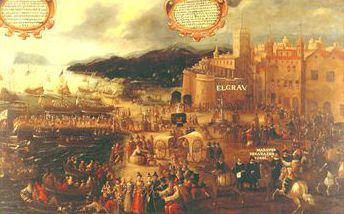 "Genre and Empire in the Mediterranean"
"Genre and Empire in the Mediterranean"
Professor Barbara Fuchs, Department of Spanish & Portuguese,
University of California, Los Angeles
September 13th, 12:15 PM - 1:30pm, 140 Nolte
Barbara Fuchs, of the Department of Spanish and Portuguese and the Department of English at UCLA, will share her work "Genre and Empire in the Mediterranean" in a Center for Early Modern History work-in-progress seminar. A copy of the paper for this seminar will circulate in advance and will be available from the Center for Early Modern History website.
October 2012
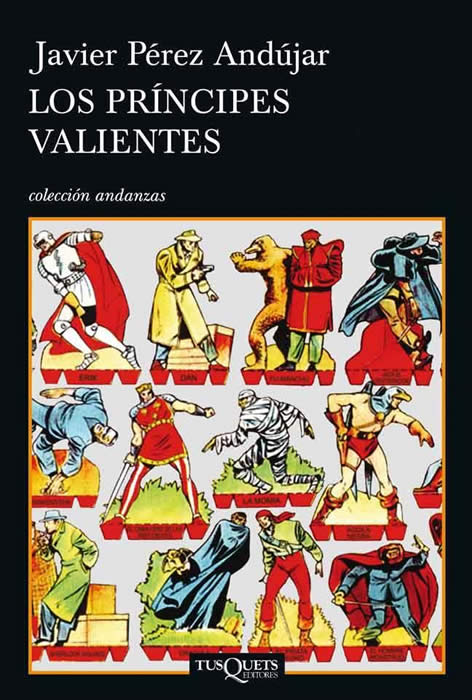 "Los hombres que dispararon en los quioscos: los autores de la novela popular en España"
"Los hombres que dispararon en los quioscos: los autores de la novela popular en España"
Javier Pérez Andújar, Spanish author and journalist
In this talk, Javier Pérez Andújar will explain the history and development of one of the main literary expressions of mass culture in contemporary Spain: the "novela de quiosco" (similar to so-called "pulp fiction" in English).
Pérez Andújar will trace the relations of this kind of literature to broader cultural and social trends, highlighting the differences among its many sub-genres (such as westerns, war tales, science fiction, thrillers, and sentimental fiction), and their different ways of engaging with changing socio-historical realities over time.
Javier Pérez Andújar (Sant Adrià de Besòs, 1965) is the author of the novels Los principes valientes (2007), Todo lo que se llevó el diablo (2010) and Paseos con mi madre (2011). He has also written the non-fiction works Catalanes todos; las 15 visitas de Franco a Cataluña (2002) and Salvador Dalí: A la conquista de lo irracional (2003) and edited the anthologies of fantastic short stories Vosotros los que leéis aún estáis entre los vivos (2005) and La vida no vale nada (2008). He currently writes literary articles and short stories for the Catalan edition of El País and contributes to L'hora del lector, a Catalan television literary program.
Iberian Studies Colloquium
11:00am to 1:00pm, October 3rd, 229 Nolte Hall
Join us to discuss how, as scholars of culture and history, we define ourselves and our work as being part of something larger than the older colonial, national and area studies models of "Spanish," "Spanish-speaking," "Portuguese," "Lusophone" or even "Latin." This inaugural University of Minnesota Iberian Studies Colloquium is designed to address critically how we can define ourselves in a transnational and global context as well as in the context of the American Academy and within the Humanities without losing the specificity and contingency that gives our work its identity. Join us to think through how alternative models from disciplines such as critical race theory or memory studies resonate with the type of work we do and/or offer avenues for future research and whether research models from a pre-colonial past may offer alternatives to the national narratives we have inherited.
Invited speakers:
- Paulo de Medeiros, University of Utrecht "Iberian Studies and Postcolonial Theory"
- Respondent: Michelle M. Hamilton, UMN
- Joan Ramon Resina, Stanford University "From Iberian Studies to Ibero-Atlanticism"
- Respondent: Bill Viestenz, UMN
Bring your own lunch; light refreshments provided.
 Joan Ramon Resina
Joan Ramon Resina
Citizen of the United States born in Barcelona in 1956. Ph.D. in Comparative Literature by U.C. Berkeley and Doctor in English Philology by the University of Barcelona. He has taught in several universities in the United States and Europe. Currently a member of the Department of Comparative Literature and the Department of Iberian and Latin American Cultures at Stanford University, he specializes in the European novel, in cultural theory, Spanish and Catalan literature and film, and urban culture. Among other awards, he has received the Fulbright scholarship, the Alexander von Humboldt fellowship, and the Serra d’Or award for literary criticism.
Single-authored books: La búsqueda del Grial (Barcelona: Anthropos, 1988), Un sueño de piedra: Ensayos sobre la literatura del modernismo europeo (Barcelona: Anthropos, 1990), Los usos del clásico (Barcelona: Anthropos, 1991), El cadáver en la cocina: La novela policiaca en la cultura del desencanto (Barcelona: Anthropos, 1997), El postnacionalisme en el mapa global (Barcelona: Centre d’Estudis Contemporanis, 2005), Barcelona’s Vocation of Modernity: Rise and Decline of an Urban Image (Stanford University Press, 2008; Catalan translation in Galaxia Gutemberg/Cercle de Lectors, 2008); Del Hispanismo a los Estudios Ibéricos: Una propuesta federativa para el ámbito cultural. Madrid: Biblioteca Nueva, 2009.
Edited collections of essays: Mythopoesis: Literatura, Totalidad, Ideología (Barcelona: Anthropos, 1992), El aeroplano y la estrella: El movimiento vanguardista en los Países Catalanes (1904-1936) (Amsterdam: Rodopi, 1997), Disremembering the Dictatorship: The Politics of Memory since the Spanish Transition to Democracy (Amsterdam: Rodopi, 2000), Iberian Cities (New York: Routledge, 2001), (with Dieter Ingenschay) After-Images of the City (Cornell University Press, 2003), (with Ulrich Winter) Casa encantada: lugares de memoria en la España constitucional (1978-2004) (Frankfurt am Main: Vervuert, 2005), Burning Darkness: A Half Century of Spanish Cinema (SUNY Press, 2008), (with William Viestenz) The New Ruralism (2012), Iberian Modalities (forthcoming).
In collaboration with Robert Davidson, he edited a double monographic issue of Diacritics titled “New Coordinates: Spatial Mappings, National Trajectories”.
Joan Ramon Resina has published over one hundred and twenty-five critical essays in refereed journals and collective volumes and writes regularly for the Catalan daily Ara. Between 1998 and 2004 he was chief editor of the journal of cultural theory Diacritics, and is currently a member of the editorial boards of various U.S. and European journals and is a consultant for various academic presses.
September 2012
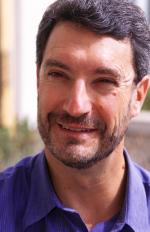 "Re-evaluating influence: The Interaction of Arab and Northern Spanish Music in Medieval Iberia"
"Re-evaluating influence: The Interaction of Arab and Northern Spanish Music in Medieval Iberia"
Professor Dwight Reynolds, Religious Studies, University of California - Santa Barbara
September 18th, 4:00 to 5:30pm, 1210 Heller Hall
Dwight Reynolds is a Professor of Religious Studies at the University of California - Santa Barbara where his research interests include Arabic Language and Literature and Oral and Musical Traditions of the Middle East. His recent work includes The Sirat Bani Hilal Digital Archive, Arab Folklore: A Handbook (2007), and "Symbolic Narratives of Self: Dreams in Medieval Arabic Autobiography," as well as "Musical 'Membrances of Medieval Muslim Spain" (2000) and, as editor, Interpreting the Self: Autobiography in the Arabic Literary Tradition (2001). His current projects are a historical/ethnographic study of Andalusian musical traditions of the Arab world and a comparative study of Arabic and European autobiographies from the 9th to the 19th centuries.

